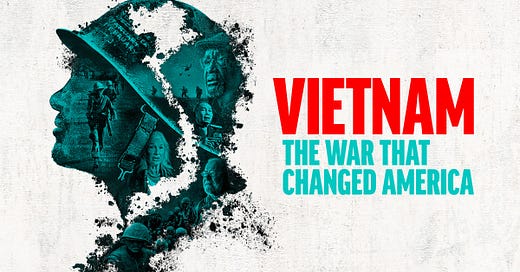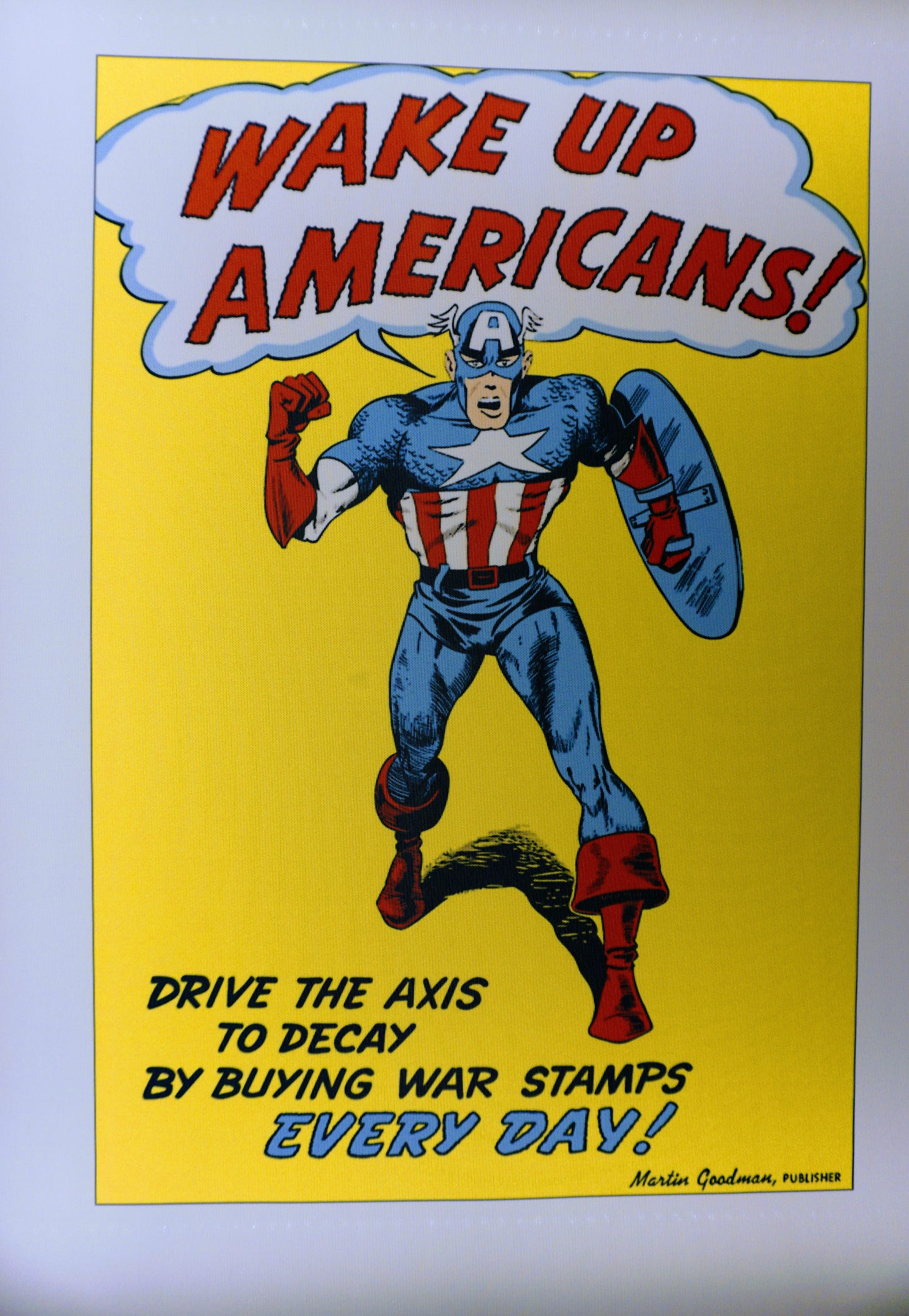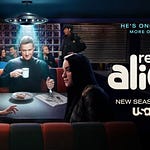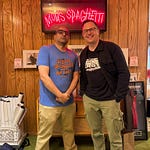Yo…
Most pop culture is fun.
You fist-pump during Marvel movies.
When you’re driving alone, you sing along (badly) with your favorite songs.
With close friends, you whisper about the night terrors activated by reading Stephen King.
That’s the good stuff.
That’s the joyful delight of pop culture—it’s thrilling, relatable and ol’ fashioned fun.
However, while most pop culture is amusing, not all of it is nutritious.
Some pop culture makes you pause.
Some of it makes you think. Or reflect.
There are deep-dive podcasts, dense non-fiction books and determined documentaries that belong to the “eat your vegetables and take your vitamins” category.
There’s media that challenges you…educates, angers and sometimes even annoyingly creates discomfort. Ya gotta make a seriously serious tea before you push play on those ones.
Occasionally—and it’s all about balance—you gotta take a break from the silly stuff and eat your vegetables.
Apple TV’s Vietnam: The War That Changed America is definitely an “eat your vegetables” docuseries. It’s clearly not a “dessert before dinner” kind of TV experience.
Vietnam: The War That Changed America is flat out nuts yet wholly riveting.
Look, I’m an ‘80s kid—World War II never really resonated with me. Some meh and a little bit of eh.
Especially in pop culture Nazis are mostly cheap, disposable goons. They’re Indiana Jones relics.
Vietnam though…Vietnam saturated ‘80s pop culture and shaped the stories stories we shared.
Apocalypse Now to Taxi Driver to Rambo to Tropic Thunder, Platoon, The Simpsons, Die Hard, A-Team. And of course, so much more. For a war we couldn’t openly discuss we told a lot of ‘Nam tales.
(And that’s just movies and TV shows. I’ve always wanted to read Marvel’s ‘Nam comics. As a punk kid, I ended up reading G.I. Joe comics instead. No regrets—I lived happily ever after. Still, it’s a notable comic book gap to have never read any of the classic real war related comics like The ‘Nam and Sgt. Rock (World War II soldier). I dwelled in fictional wars where Captain America battled the Red Skull. It might be time to rectify this gap. Marvel is publishing The ‘Nam: 1966-1969 Omnibus this August.)
Hell: A-Team was one of the first times I heard about Hanoi.
Mekong Delta, Da Nang, Saigon, Hamburger Hill, the Ho Chi Minh trail: yo I only know this fierce Vietnam geography from a legion of ‘80s action movies.
Flying in the chopper to the roof:
Big Johnson: “Yeee-haw: Just like fuckin’ Saigon, hey, Slick?”
Little Johnson [smiling]: “I was in junior high, dickhead.”
Classic Die Hard moment.
The scene is barely 30 seconds in a movie set in present day LA and yet Vietnam is acknowledged.
I spent countless hours sweating in dense jungles, terrified the Viet Cong had set up tripwires.
Horrified I helplessly watched as American soldiers committed war crimes.
I cheered when Soldiers of Fortune brazenly rescued POWs.
I attempted to process what we now call PTSD when the soldiers returned home. Many from that grim war came home either wounded physically and/or mentally.
We lived with Vietnam like a lousy roommate.
But…what really happened?
Fiction vs. Fact: the first casualty of war…
So often, I’ve only viewed the Vietnam war through a fictional lens.
Ethan Hawke as the narrator of Vietnam: The War That Changed America, says in the first episode:
“You may have seen movies about Vietnam, but this is the real story.”
Yes. Tell me. I wanna know and hear this.
This fascinating six-part docuseries “commemorates the 50th anniversary of the fall of Saigon and the end of the Vietnam War, offering a deeply human look at the lives of those who lived through one of the most divisive conflicts in American history.”
It smoothly adds much-needed historical context to the complex experiences and dense emotions many of us inherited from all the films, TV shows, songs and occasionally secondhand stories.
The six-part docuseries has a noticeable arc. It’s immersive with soldiers in Vietnam, bit it also confirms how polarizing the war became in America. With skillful nuance it covers the anti-war movement while posing an essential question. Since war requires at least two nations, what scars did this conflict leave on the Vietnamese? (Often we (understandably) only present the American wounds.)
To discuss all this, I welcomed the docuseries producer, Caroline Marsden to My Summer Lair. We talked about what makes Ethan Hawke the ideal narrator for this war documentary. (He’s excellent. Is that an odd comment to make about a narrator?)
And yes she and I talk about the impressive soundtrack—you’ve never heard a documentary scored with music this good. (The Doors, The Rolling Stones, The Animals, The Who and I suppose other bands whose names start with The.)
Caroline was a producer on World War II: From the Frontlines (you can check it out on Netflix. Though it’s another eat your vegetables engagement.)
Discovering that tidbit I was elated and so grateful for a rare opportunity. We view America through the spectacle of those 2 crucial wars. So, I’m curious…how was Vietnam different (or similar?) to World War II?
Finally, we unpacked the potent imagery. Vietnam was the first “TV war” and the docuseries presents some truly stunning footage. Caroline and I explore some of those powerful visuals—but honestly, you need to see it to believe it. It’s one of those arrangements.
More than 58,000 U.S. military personnel died in Vietnam. The docuseries traces the story from the first boots on the ground—March 8, 1965, when U.S. combat troops came ashore near Da Nang in South Vietnam.
Ultimately, Vietnam was a catastrophic American failure that unfolded over the course of five presidents: Harry Truman, Dwight D. Eisenhower, John F. Kennedy, Lyndon B. Johnson and Richard Nixon.
For context and comparison, Osama bin Laden covered four presidencies: George H.W. Bush, Bill Clinton, George W. Bush and Barack Obama—from the early ‘90s through his death on May 2, 2011. (Technically, it’s a flawed comparison since Vietnam is clearly over and we’re still foolishly engaged in the war on terror. And the war on drugs. And other dumb endless wars that resolve little. America’s greatest unused asset is its remarkable history.)
I mentioned a number of classic Vietnam movies most of us have seen growing up. I figure that’s an ideal entry point with my attached Caroline conversation—starting with one of the rare fun Vietnam movies.
Remember Robin Williams in Good Morning Vietnam? Oh, yes.
Let’s reminisce about the ‘80s roommate we never really knew:
👍 What’s a Hollywood movie that shaped your understanding of Vietnam?
👉 What did you think of the Apple TV docuseries?
If you’ve only experienced the Vietnam War through Hollywood, Apple TV’s Vietnam: The War That Changed America is Must See TV. It’s currently streaming if you wanna #SetTheVCR and eat your pop culture vegetables.
And I figured since today is Memorial Day in America, this is a valid occasion to honor and mourn the U.S. military personnel who’ve died while serving. Apple TV’s Vietnam is an accurate snapshot of the high cost we pay when we declare war.
My Summer Lair Is Now On YouTube
I’ve recently uploaded my podcast, My Summer Lair to YouTube.
If you smash the subscribe button I’d appreciate it. Check out the My Summer Lair channel. (Subscribe is to the lower right of the round logo.)
(Never No Worries: I am not going full on “Hey Guys!” Or like recording insipid videos sitting in the front seat of my car. I find all that gross. That’s not why I go online. Just as water can be ice, I’m simply offering the program on a different platform. It’s still the same Yo! and still the same patented Sammy sarcasms.
I’m a curator not an influencer. I’m a snob, not a “thought leader.” (What the hell is a thought leader anyways?)
All the videos have a subtle and enjoyable animation; thanks to Stephanie’s hard work. She’s the best. She is…my A-Team.
Still an ‘80s Punk Kid in 2025…
Sammy Younan
-28-
Sammy Younan is the affable host of My Summer Lair podcast: think NPR’s Fresh Air meets Kevin Smith: interviews & impressions on Pop Culture.














Share this post